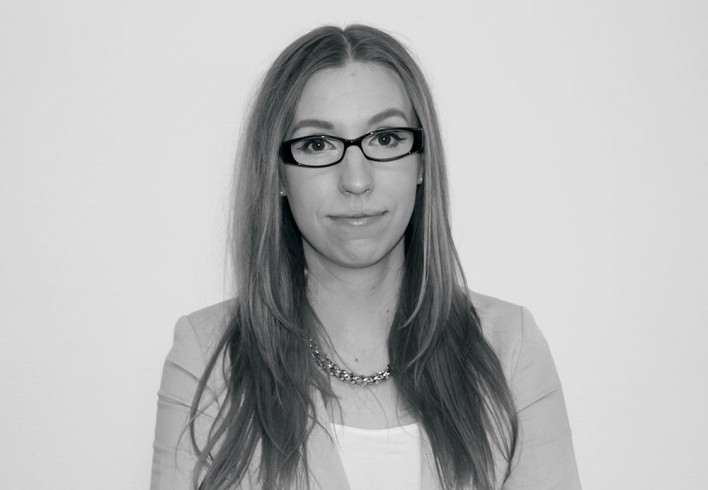Advice
An interview with Karolina Jurasik
By: Sarah Walsh
Updated: 25 November 2015

As part of our series of monthly interview with the MyMind mental health professionals team, we are talking to Psychologist Karolina Jurasik.
Why did you become a Psychologist?
What attracted me to the area of Psychology was people. I was very interested in how people see things and how things are perceived differently by everyone because of individual experiences. I was told by my friends that I’d make a good Psychologist because I am a good listener and as soon as I started the course, I instantly wanted to learn more – especially about being a therapist.
Was there a lot of training involved to become a therapist?
Yes, there was and continues to be. As a therapist, you have to continuously study, learn and broaden your knowledge in the area to be really good at what you do. We always joke that you become a really good Psychologist when you’re 60, as you are gathering experience constantly throughout your life. It was a very intense five years of study and training and then I was doing volunteer work around this. I think direct experience is important as you’re working with people and you can gauge how you are reacting and improve your skills in working with this dynamic.
You speak Polish in your sessions with clients. What do you think are the benefits of this for the client?
I think it’s very important that a person feels comfortable with their therapist, and feels welcome and in good hands. Sometimes, meeting someone who speaks your own language is part of this. If English isn’t a person’s first language, people can hesitate or scared to speak English. People sometimes find it easier to express their thoughts and feelings in own language which is obviously an important part of the healing process.
What approach/es do you practice?
I use an integrative approach in my sessions, which incorporates lots of techniques and skills in the area of Psychology. What I find very useful and it’s often want clients to want to explore is CBT or Cognitive Behavioural Therapy. It really does depend on what people want to gain from the experience. Some may want to develop life tools, others may want to understand their behaviour or emotions better and why they are experiencing them.
What do you think are the barriers that stand in people’s way to approaching therapy for the first time?
I think one of the barriers that stand in people’s way is a fear of change which we all have. Sometimes our body and mind will resist change because it’s the unknown. Even if it’s something we know isn’t great for us – like chocolate, for example, we’ll eat it anyway because it’s what our mind knows and craves. It often takes more effort and is more demanding to change instead of stay the same, even if it’s not good for us. Time can also be a barrier as working on yourself is a commitment and you need to make space in your life for it. It’s all about motivation – I find therapy isn’t as effective when a person is unmotivated. When you realise that the change is something you have to do, or you want to grow and learn – this is where the motivation comes from.
MENTAL HEALTH PROFESSIONALS WORKING WITH Other ISSUES:
Approach: Solution-Focused Brief Therapy , Systemic & Family Therapy , Mindfulness , Psychodynamic Therapy , Person-Centred Therapy , Humanistic & Integrative Psychotherapy , Gestalt Therapy , Psychoanalytic Psychotherapy , Cognitive Behavioural Therapy (CBT)
Works with: Individual Session
Specialities: Anger , Anxiety , Bereavement / Loss , Communication Issues , Depression , LGBT , Obsessive Compulsive Disorder , Relationship issues , Self Care , Self-Esteem , Stress , Trauma , Work Issues, Work/Life balance , Other
Next avaialble appointment: 19:00 27 January 2025
Approach: Cognitive Behavioural Therapy (CBT) , Mindfulness , Creative Art Therapy , Person-Centred Therapy , Other
Works with: Individual Session , Online Session
Specialities: Anger , Anxiety , Depression , Isolation / Loneliness , Neurodiversity , Personal Development , Relationship issues , Self Care , Self-Esteem , Stress , Trauma , Work Issues, Work/Life balance , Other
Next avaialble appointment: 17:00 24 January 2025
Approach: Humanistic & Integrative Psychotherapy , Cognitive Behavioural Therapy (CBT) , Person-Centred Therapy , Other
Works with: Individual Session , Couples
Specialities: Addiction , Anger , Domestic Violence / Abuse , Eating Disorder / Body Image , Fertility , Isolation / Loneliness , Neurodiversity , Obsessive Compulsive Disorder , Personal Development , Personality disorder , Relationship issues , Self-Esteem , Sexuality (LGBTQIA+) , Stress , Trauma , Work Issues, Work/Life balance , Other
Next avaialble appointment: 17:00 23 January 2025
NEXT ARTICLE
MyMind is a winner!
Search
Get The Support You Need
From One Of Our Counselors
News
Isolation
Anxiety
Depression
Relationship Issues
Counselling
Personality Disorder
Addiction
Trauma
Children and Adolescent
Anger
Bereavement
Chronic Illness
Communication Issues
Eating Disorder
Post natal depression
Stress
LGBTQI+
Panic Attack
OCD
Resilience
Parental support
Men's Mental Health
Category List
All Posts
News
Isolation
Anxiety
Depression
Relationship Issues
Counselling
Personality Disorder
Addiction
Trauma
Children and Adolescent
Anger
Bereavement
Chronic Illness
Communication Issues
Eating Disorder
Post natal depression
Stress
LGBTQI+
Panic Attack
OCD
Resilience
Parental support
Men's Mental Health

